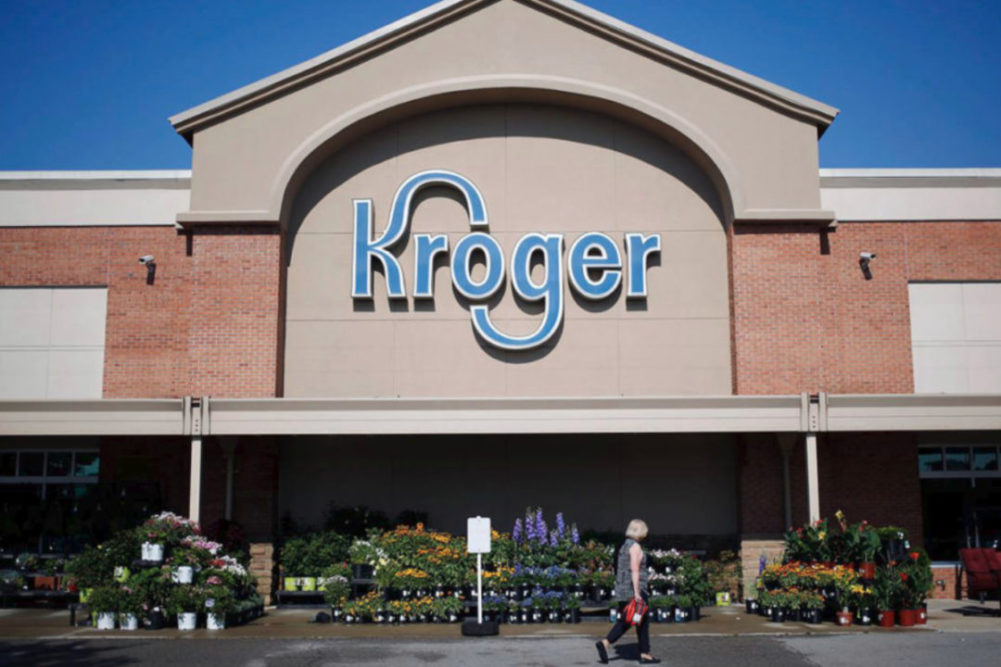CINCINNATI — Executives of The Kroger Co. credit loyalty discounts, personalized digital coupons and a broad private label assortment for helping shoppers save money in a challenging economic environment, leading to increased customer trips and household growth in the recent quarter.
“We grew mainstream households, which make up the largest segment of our customer base,” said W. Rodney McMullen, chairman and chief executive officer, during a June 15 conference call with securities analysts to discuss first-quarter results. “We also grew our higher-income customer households, as they migrate from specialty retailers to Kroger. These customers are extremely valuable because they are building larger baskets and spending more per item. We see these customers buying premium Our Brands lines, more fresh items and larger pack size, and as a result, they are more profitable.”
In contrast, he said, Kroger’s budget-conscious households are buying fewer items, as supplemental nutrition assistance program benefits declined during the quarter.
“In some cases, we see these households switching to lower-priced products and smaller pack sizes,” McMullen said. “The least loyal customers in this group are clearly prioritizing the price at shelf, over other factors such as personalized offers, convenience and quality.”
The company’s Our Brands business, which includes Simple Truth, Private Selection and Smart Way, delivered 4.9% growth in the quarter.
“Our Brands are always a winner with our customers,” McMullen said. “In this period of sustained high inflation, it helps our customers save money without sacrificing quality. While inflation may have been the reason for some customers trying Our Brands products, the taste and quality makes the customer love these products and continue to repurchase them.”
Introduced last year, Smart Way is Kroger’s opening price point brand that includes canned vegetables, bread, juices and other grocery staples.
“The launch of our new opening price point brand, Smart Way, has enhanced overall brand architecture, and our relentless focus on continuous improvement and innovation is driving strong momentum across the portfolio,” said Gary Millerchip, chief financial officer. “We expect this momentum will continue to deliver value for the remainder of 2023.”
For the first quarter ended May 20, net earnings attributable to Kroger were $962 million, equal to $1.33 per share on the common stock, up 45% from $664 million, or 91¢ per share, in the prior-year period. Results were helped by sourcing benefits, lower supply chain costs and the effect of a terminated agreement with Express Scripts, partially offset by higher shrink and increased promotional price investments.
Excluding special items impacting comparability, adjusted earnings were $1.1 billion, up slightly from the year-ago quarter.
Sales totaled $45.2 billion, up 13% from $44.6 billion.
Identical sales without fuel increased 3.5% over the same period last year, with underlying growth of 5% when adjusting for the reduction of pharmacy sales due to the terminated Express Scripts agreement.
Kroger’s digital sales grew 15% in the quarter.
“We believe digital will continue to be an important growth driver and anticipate double-digit sales increases will continue for the remainder of 2023,” Millerchip said.
For the full year, management expects identical sales excluding fuel to grow 1% to 2%, with underlying growth of 2.5% to 3.5%. Adjusted net earnings per diluted share are expected to range between $4.45 and $4.60, including an estimated benefit from an extra week.
McMullen shared an update on Kroger’s pending merger with Albertsons Cos. The proposed transaction, valued at approximately $24.6 billion, was announced this past October and, if approved, will encompass 4,996 stores, 52 processing plants, 66 distribution centers, employ approximately 710,000, and, on a combined basis have an estimated $210 billion sales and $3.3 billion in earnings.
“Integration planning has progressed nicely, and I'm energized by the people and talent across both the Albertsons and Kroger teams,” McMullen said. “I’m even more confident in the opportunities ahead, as we accelerate our strategy and deliver more value for our associates, customers, communities and shareholders. We remain on track and continue to expect the transaction to close in early 2024.
“We are working cooperatively with the regulators and at the same time, to identify potential buyers for the stores we expect to divest to obtain clearance for the transaction. We will find well-capitalized buyers with experienced management teams that will maintain competitiveness. We are very pleased with the level of interest received thus far, and we'll work towards finding a solution that benefits all stakeholders.
“We continue to engage with various stakeholders in addition to the regulators and are actively working to address inaccuracies and misrepresentations about the merger. We made a commitment on the day we announced the deal that this merger is about growth and that we will not lay off any frontline work associates, as a result of this merger. We are also committed to not closing any stores, distribution centers or manufacturing facilities as a result of the merger. We are very proud of our ability to make such a commitment, especially at a time when many companies are announcing job cuts. And this is consistent with Kroger's track record in recent mergers.”



